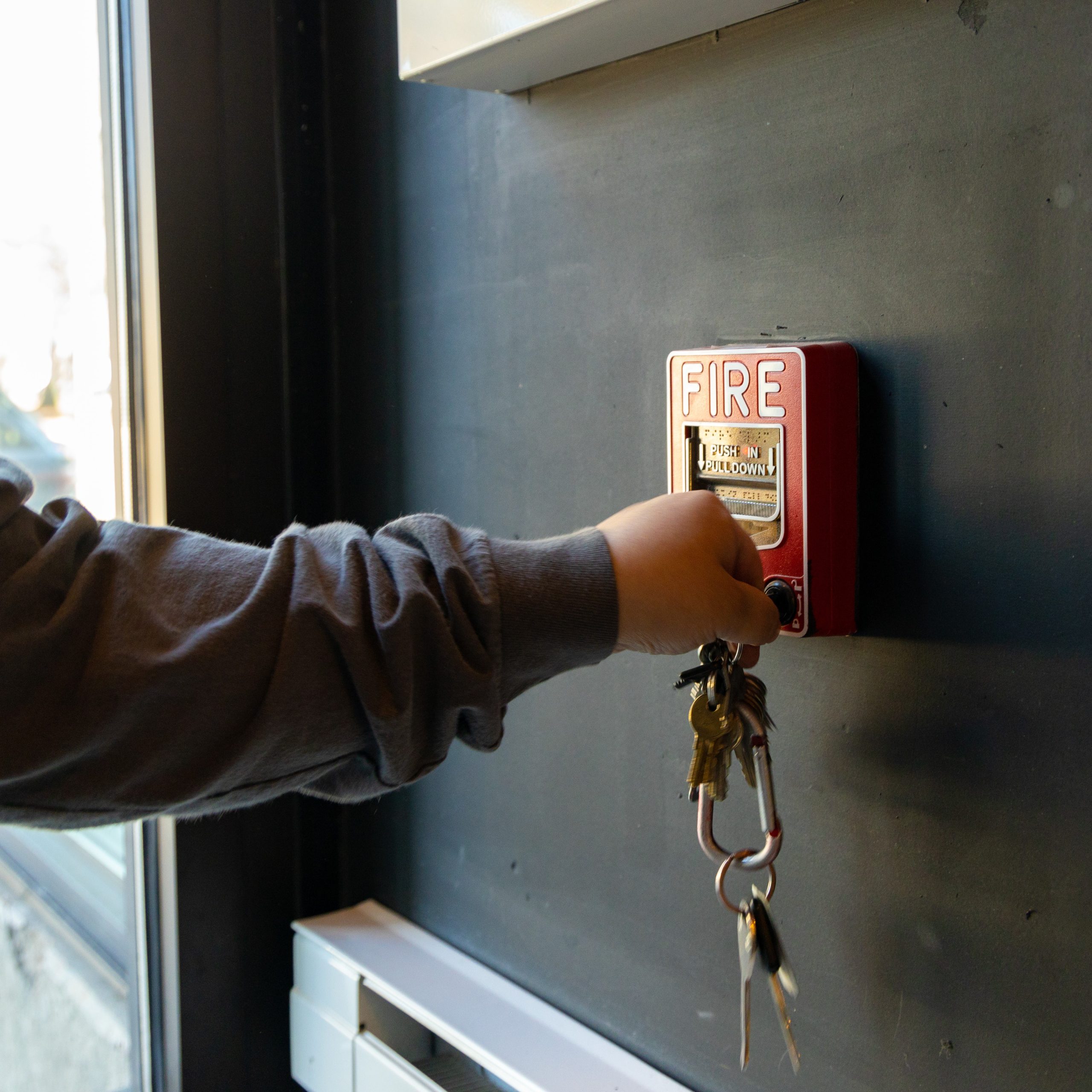
The fire alarms and fire sprinklers in your building need to be inspected and tested in accordance with NFPA guidelines and local codes. With different regulations for fire sprinkler and fire alarm inspection and testing frequencies for each type of system, it can be hard to keep track of when your systems need service. Inspection intervals will vary based on the AHJ (authority having jurisdiction) and the type of system you have.
Inspections vs. Testing of Fire Protection Systems
Inspections of fire protection systems include visual checks that the system looks to be in the proper condition. Testing of systems involves more in-depth physical checks that your systems are functioning correctly.
Fire Sprinkler Testing & Inspection Frequencies
Inspections and testing of fire sprinkler systems may be performed weekly, monthly, quarterly, semi-annually, and annually.
Weekly
Every week, inspections of gauges in dry, pre-action, and deluge sprinkler systems should be performed.
Monthly
Inspections of gauges in wet pipe sprinkler systems should occur on a monthly basis.
Quarterly
Inspections of fire department connections, water flow alarm devices, valve supervisory alarm devices, supervisory signal devices, control valves, and hydraulic nameplates should be performed every quarter. Testing of fire sprinkler mechanical devices should occur on a quarterly basis.
Semi-Annually
Semi-annually, vane and pressure switch type devices must be tested.
Annually
Annually, hangar and seismic bracing, pipes and fittings, information signage, and spare sprinklers should be inspected. Every year, a full test and tagging and physical checks on all parts of the fire sprinkler system should be performed, including:
- Water flow test
- Fire pump test
- Antifreeze concentration test (if applicable)
- Alarm tests
- Trip tests of dry, deluge and pre-action valves
Every 3 Years
If you have a dry or pre-action sprinkler system, testing leak rates need to be tested every 3 years.
Every 5 Years
Every 5 years, you need to get an internal inspection of your sprinkler piping performed and test the gauges. Sprinklers exposed to extra high temperatures or harsh environments should be tested or replaced every 5 years.
After 15 Years, Then Every 10 Years
Dry sprinklers should be tested or replaced after 15 years and then every 10 years after that.
After 20 Years, Then Every 10 Years
Fast response sprinklers should be tested after 20 years and then every 10 years after that.
After 50 Years, Then Every 10 Years
Standard response sprinklers should be tested after 50 years, then every 10 years after that.
Fire Alarm Inspection & Testing Frequencies
Fire alarm inspections should occur weekly, monthly, semi-annually, and annually.
Weekly
Every week, you should inspect control equipment including fuses, LEDs, power supply, and check for trouble signals on your fire alarm system.
Monthly
Fire alarm inspections should be performed monthly to inspect batteries.
Semi-Annually
On a semi-annual basis, testing of the functionality of flow switches, tamper switches, and backup batteries should be performed. Visual inspections of initiation and notification devices should occur semi-annually.
Annually
Fire alarm inspection and testing should be performed every year, including:
- Horn/strobe testing and inspection.
- Inspection and testing of pull stations, detectors, and flow switches.
- Control panel testing and inspection.
- Battery and backup power supply panel testing and inspection.
- Testing of voice evacuation equipment.
- Send signals to monitoring center to test communication path.
Fire Protection Inspections & Testing From WSFP
At Western States Fire Protection, we perform fire sprinkler and fire alarm inspections and testing as often as required by NFPA standards or AHJ requirements. Our team of experienced technicians can perform inspections and testing aligned with your schedule to minimize disruption to your business. With locations across the western half of the United States, we are ready to provide for all your fire protection service needs. Schedule an inspection with WSFP today!